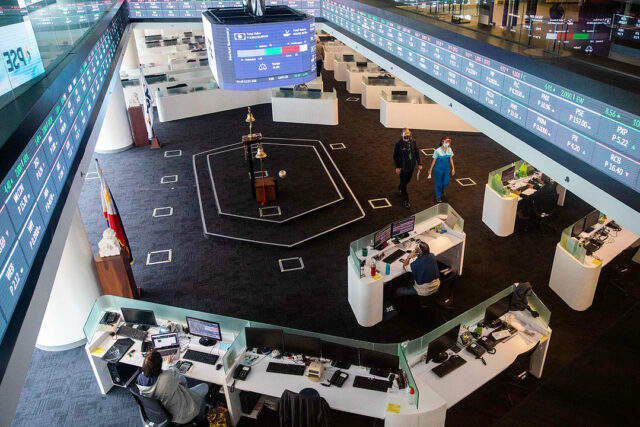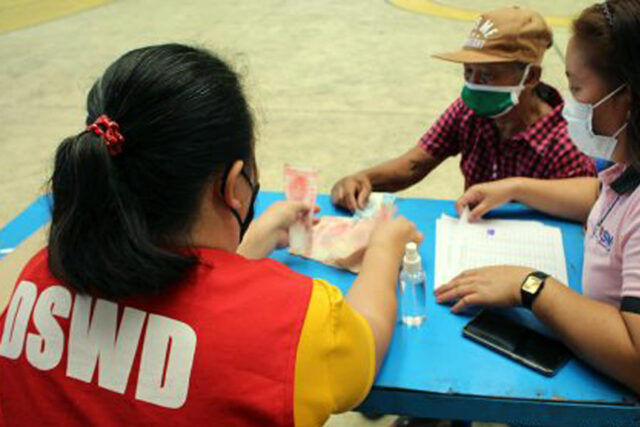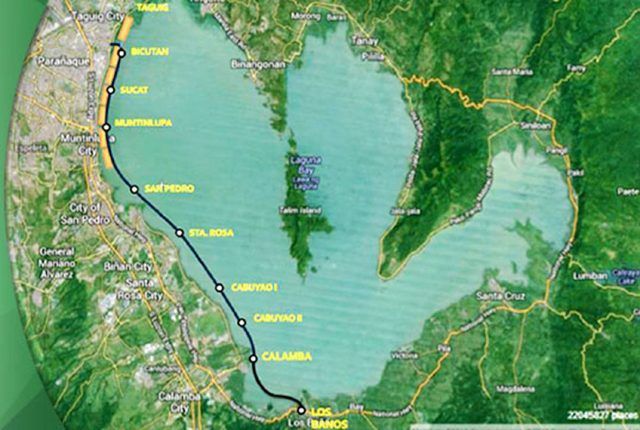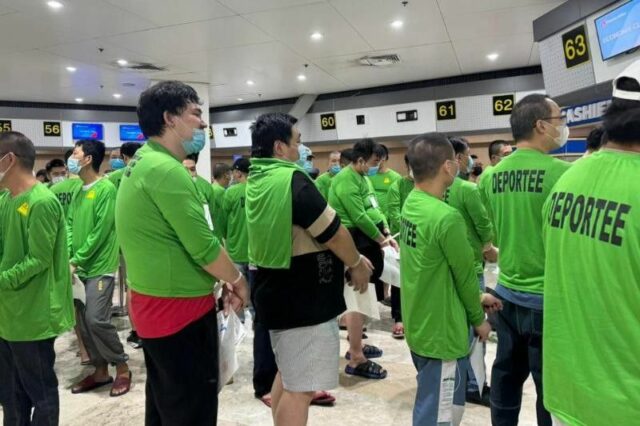Profit taking halts PHL shares’ three-day climb
PHILIPPINE SHARES closed lower on Tuesday as investors pocketed their gains following the market’s three-day rally.
The Philippine Stock Exchange index (PSEi) fell by 0.33% or 22.28 points to close at 6,667.09 on Tuesday, while the broader all shares index dropped by 0.23% or 8.29 points to end at 3,585.93.
“The local market dropped due to last-minute profit taking after a three-day consecutive climb,” Philstocks Financial, Inc. Research and Engagement Officer Mikhail Philippe Q. Plopenio said in a Viber message. “Many chose to remain on the sidelines as net market value turnover was tepid.”
“This Tuesday’s correction may imply that investors are not yet prepared to see the bourse above the 6,700 resistance level,” Mr. Plopenio added.
“Local shares succumbed to profit taking following a successive run-up of the index as investors bet that the unsuccessful assassination attempt boosted Donald J. Trump’s chances of reclaiming the White House,” Regina Capital Development Corp. Head of Sales Luis A. Limlingan said in a Viber message.
The shooting attempt on Republican candidate and former US President Donald J. Trump’s life immediately altered the dynamics of the presidential campaign, which had been focused on whether President Joseph R. Biden should drop out due to concerns about his age and acuity following a halting June 27 debate performance, Reuters reported.
Mr. Limlingan added that dovish comments from US Federal Reserve Chair Jerome H. Powell overnight also affected the local market’s movement on Tuesday.
Mr. Powell said on Monday the three US inflation readings over the second quarter of this year do “add somewhat to confidence” that the pace of price increases is returning to the Fed’s target in a sustainable fashion, remarks that suggest a turn to interest rate cuts may not be far off, Reuters reported.
Traders continue to expect a September rate cut followed by additional cuts in November and December, bringing the policy rate down to 4.5%-4.75% by yearend.
Almost all sectoral indices closed lower on Tuesday, with property being the sole gainer, rising by 1.73% or 45.86 points to 2,697.04.
Financials dropped by 1.32% or 26.89 points to 2,000.53; services went down by 0.84% or 17.35 points to 2,029.27; mining and oil declined by 0.56% or 48.98 points to 8,597.27; holding firms retreated by 0.33% or 19.45 points to 5,765.91; and industrials lost 0.27% or 24.75 points to end at 9,131.75.
“Among the index members, Ayala Land, Inc. was at the top, climbing 3.26% to P31.70. PLDT, Inc. lost the most, dropping 3.23% to P1,499,” Mr. Plopenio said.
Decliners beat advancers, 98 versus 79, while 55 issues were unchanged.
Net foreign buying stood at P304.96 million on Tuesday, a turnaround from the P46.18 million worth in net selling recorded on Monday. — R.M.D. Ochave with Reuters














